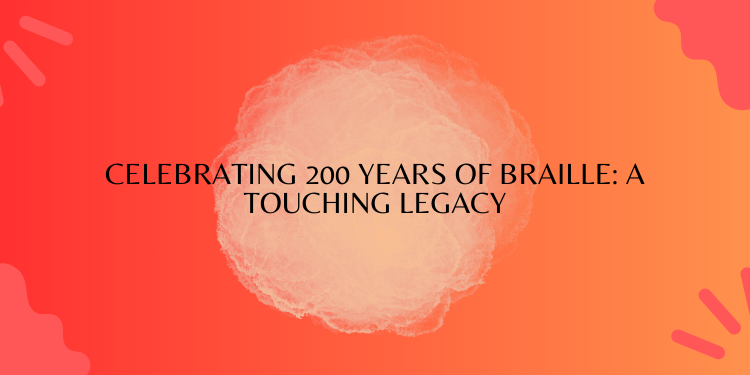Two centuries ago, on January 4, 1809, a remarkable individual named Louis Braille was born. Little did the world know that this date would mark the beginning of a revolutionary journey in the realm of reading and writing for the visually impaired.
Louis Braille, blinded at a young age, went on to invent the Braille code, a tactile system that transformed the lives of millions.
Louis Braille’s Journey
Louis Braille’s story began in Paris. Despite losing his sight due to an accident at the age of three, Braille’s passion for learning and education persisted. Inspired by a military code of raised dots, he developed a system that would enable blind individuals to read and write independently.
The Birth of Braille
In 1824, at the age of 15, Braille introduced his tactile code to the world. Composed of raised dots arranged in specific patterns, the Braille system provided a method for individuals with visual impairments to recognize letters, numbers, and even musical notations.
This breakthrough not only empowered blind people to access written information but also opened doors to education and employment opportunities.
Braille’s Enduring Impact
Two hundred years later, Louis Braille’s legacy lives on. His name has become synonymous with accessibility, inclusion, and empowerment for the visually impaired. The Braille code is universally recognized and continues to be a fundamental tool in education and daily life for those with visual challenges.
World Braille Day and Braille Literacy Month
In December 2023, the world came together to celebrate the 200th anniversary of Braille’s invention. World Braille Day and Braille Literacy Month served as platforms to recognize the significance of Braille’s contribution and raise awareness about the importance of Braille literacy.
Looking Ahead: Braille in the Digital Age
As technology evolves, so does Braille. Electronic Braille displays and Braille-enabled devices bring the tactile code into the digital age. This integration enhances accessibility and opens new avenues for communication and learning.
Educational Initiatives
Educational institutions play a pivotal role in promoting Braille literacy. Dedicated programs and resources ensure that students with visual impairments have access to quality education, fostering a sense of equality and competence.
Braille: Beyond Borders
Louis Braille’s invention transcends geographical boundaries. Its impact is felt globally, with various countries adopting and adapting the Braille system. This universality underscores the significance of Braille as a tool for communication and inclusion.
Despite progress, challenges persist in ensuring universal access to Braille. Advocacy and support for Braille literacy remain crucial. By recognizing the 200th anniversary of Braille’s invention, we renew our commitment to a world where everyone, regardless of visual ability, can read and communicate independently.







